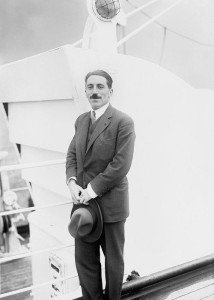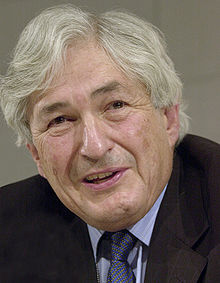Today in Olympic History, …
- 291 Olympians were born and …
- 65 Olympians died
- Marion Jones (USA) was born in 1879, but not the one you think, but rather Marion Jones the tennis player who won two bronze medals at the 1900 Olympics, in singles and mixed doubles, making her the first American woman to win Olympic medals.
- Victor Galíndez (ARG) was born in 1948. Galíndez was a boxer at the 1968 Olympics, without much success, although he had won a silver medal at the 1967 Pan American Games. He had much more success as a professional, winning and holding the WBA light-heavyweight title from 1974-1978 and again briefly in 1979.
- Bruce Baumgartner (USA) was born in 1960. Baumgartner is the most successful super-heavyweight wrestler in US history, winning four Olympic medals, including golds in 1984 and 1992. Baumgartner won three World Championships, three Pan American Games gold medals, had eight World Cup wins, and was a 17-time US Champion.
- Noah Ngeny (KEN) was born in 1978. Ngeny was a middle-distance runner who won the gold medal in the 1,500 metres at the 2000 Sydney Olympics. He was a silver medalist in the 1,500 at the 1999 World Championships and set one world record, running 2:11.96 in September 1999 for the 1,000 metres.
- Gillian Apps (CAN), descended from hockey royalty, was born in 1983. Apps won three gold medals in ice hockey for Canada at the 2006, 2010, and 2014 Winter Olympics. Her grandfather, Syl Apps, is considered one of Canada’s greatest ever hockey players, is a member of the Hockey Hall of Fame, and also competed at the Olympics. He placed sixth in the pole vault at the 1936 Berlin Olympics. Gillian Apps’ father, Syl Apps, Jr., also played in the National Hockey League, for 10 seasons with the New York Rangers, Pittsburgh Penguins, and Los Angeles Kings.
- Hélène, Countess de Portales (SUI) died on this day in 1945. A crew member on her husband’s yacht, Lerina, at the 1900 Olympics, she was the first female Olympic competitor, and the first female Olympic medalist, winning a gold and silver medal.
- Two renowned American track & field champions died on this day. Ted Meredith died in 1957. He won gold medals in the 800 metres and the 4×400 metre relay at the 1912 Olympics. Milt Campbell died in 2012. Campbell won a gold medal in the decathlon at the 1956 Olympics, after winning a decathlon silver in 1952.
- Vasily Rudenkov (URS) died in 1982. Rudenkov was the gold medalist in the hammer throw at the 1960 Olympics.
- No Olympic events were held on this day, however, Olympic competition has been held in November. At the 1904 St. Louis Olympics, some football (soccer) matches were contested in November, the Games ending on 23 November. At the 1956 Olympics in Melbourne, the Games opened on 22 November, to match the Southern Hemisphere summer. There is no truth to the rumor that discus and hammer throwers had to spin in a reverse direction during those Games.
- And the 1st and 2nd Zappas Olympic Games were held in November in Athinai in 1859 and 1870. The Zappas Olympic Games were early forerunners of the Modern Olympic Games, and among many attempts of revival of the Ancient Olympics.
- And in November 1892, Pierre de Coubertin held the conference at the Sorbonne at which the delegates re-instituted the Olympic Idea, and formed the International Olympic Committee (IOC).
- And on 25 November 1979, the two-China problem was finally resolved by the IOC when it formally recognized the Republic of China, and on 26 November, the Chinese Taipei Olympic Committee was formally recognized under that name.
- And on 24 November 1998, Salt Lake City television station KTVX reveals that the Salt Lake Bid Committee had been paying tuition and expenses for the daughter of an IOC Member. Paraphrasing Boston Globe sportswriter Bob Ryan, “the excrement was about to hit the cooling device.”

